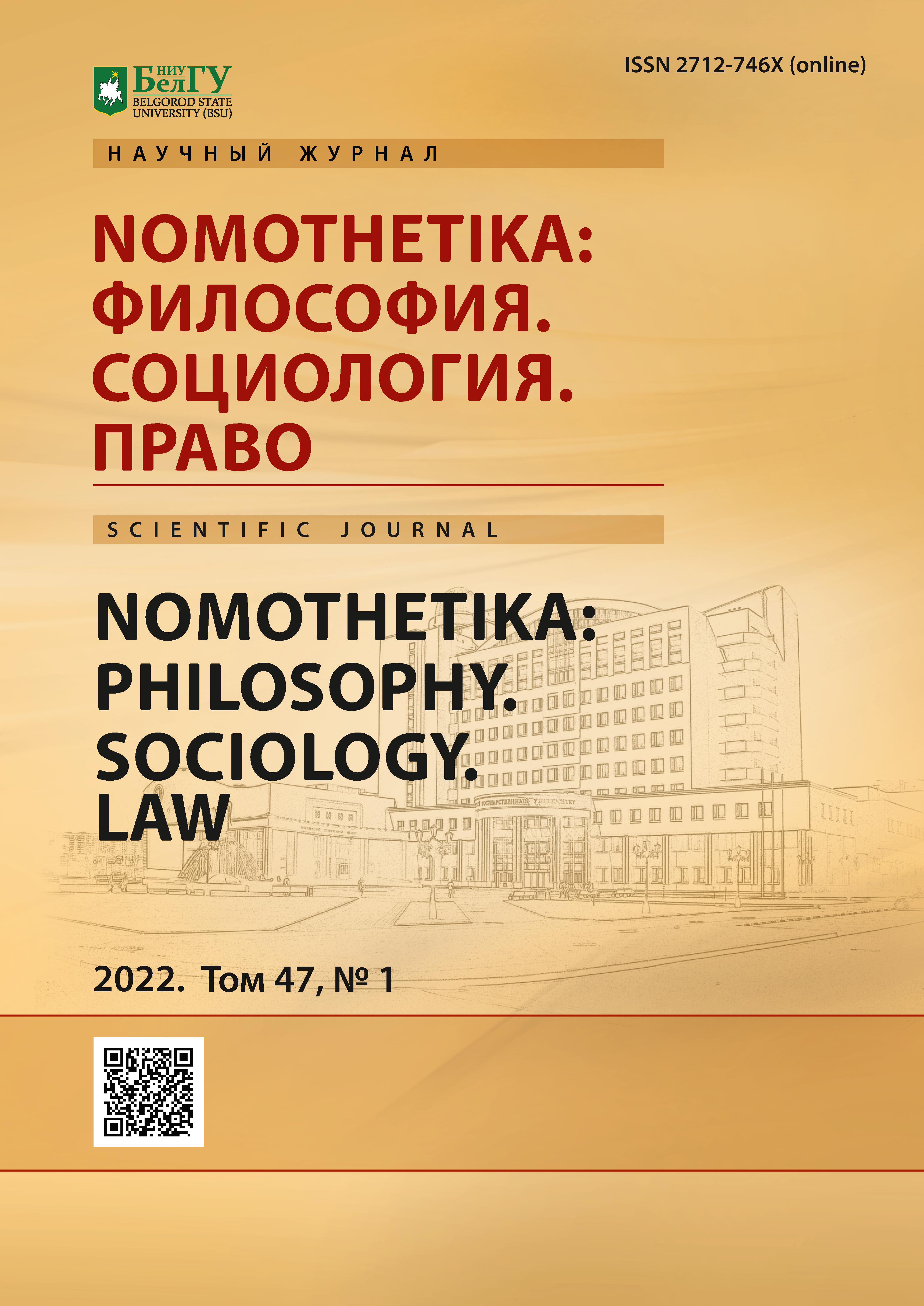Problems in Intellectual Property Law, Prospectively Determined by the Processes of Digitalization: General Questions of Theory
DOI:
https://doi.org/10.52575/2712-746X-2022-47-1-117–125Keywords:
intellectual property law, future of law, digitalization and intellectualization in law, theory of lawAbstract
The set of regulatory and policy documents in Russia adopted in recent years has been a response to the rapid digital innovation changes in technological landscapes, but there remains one segment of such changes related to intellectual property law, where regulation is clearly lagging behind. But this problem is largely caused by insufficient scientific understanding and understanding of radical digital changes in this area. Although all this is of significant scientific and practical legal interest. The heterogeneity and complexity of the transformations taking place in intellectual property law in connection with and as a result of the processes of digitalization and intellectualization determine the difficulties for the researcher, and that is why these issues have not been sufficiently studied today. And this article aims to fill a number of gaps in this understanding, offering a fresh and objective view. The article for the first time presents and substantiates a list of the generalized topical problems of functioning and subsequent development of key institutions of intellectual property law (such as copyright and patent law), which are prospectively determined by the processes of digitalization and intellectualization.
Downloads
References
Аристов Е.В., Кузнецова О.А. 2018. К вопросу о формировании и развитии права роботов (правового регулирования робототехники), Наука и образование: хозяйство и экономика; предпринимательство; право и управление, 8: 58–62.
Дегтярев М.В. 2021. Новейшие юридические регуляторные технологии и инструментарии: понятие, концепт, типологизация инструментариев, Юридическая орбита, 1: 41–44.
Полякова Т.А., Чеботарева А.А. 2019. Влияние цифровых технологий на изменение регуляторного ландшафта: правовые аспекты, Мягкие измерения и вычисления, 10: 10–13.
Хабриева Т.Я., Черногор Н.Н. 2020. Будущее права. Наследие академика В.С. Стёпина и юридическая наука. М., ИНФРАМ. 176 с.
Afoaku M. 2017. The Reality of Augmented Reality and Copyright Law. Northwestern Journal of Technology and Intellectual Property, 15 (2): 111–128.
Comino S., Manenti F.M. 2015. Intellectual Property and Innovation in Information and Communication Technology (ICT). European Commission (Joint Research Centre, Institute for Prospective Technological Studies). Luxembourg: Publications Office of the European Union, 54 p.
DeNardis L. 2017. Introduction: The Complex Geopolitics of Digital Property and Trade. In: Mapping the Digital Frontiers of Trade and Intellectual Property. Waterloo (Canada): Centre for International Governance Innovation and the Royal Institute of International Affairs: 1–4.
Hauck R. 2021. Blockchain, smart contracts and intellectual property. Using distributed ledger technology to protect, license and enforce intellectual property rights. Legal Issues in the Digital Age, 1: 17–41.
Lee J.-A., Hilty R.M., Liu K.-C. 2021. Roadmap to Artificial Intelligence and Intellectual Property. An Introduction. In: Artificial Intelligence and Intellectual Property. Edited by Jyh-An Lee, Reto М. Hilty, Kung-Chung Liu. Oxford: Oxford University Press.
Nwaneri C. 2017. Ready lawyer one: legal issues in the innovation of virtual reality. Harvard Journal of Law & Technology, 30(2): 601–627.
The Digital Dilemma: Intellectual Property in the Information Age. 2001. National Research Council (Committee on intellectual property rights and the emerging information infrastructure). Ohio State Law Journal, 62: 951–971.
Abstract views: 221
Share
Published
How to Cite
Issue
Section
Copyright (c) 2022 NOMOTHETIKA: Philosophy. Sociology. Law

This work is licensed under a Creative Commons Attribution 4.0 International License.


